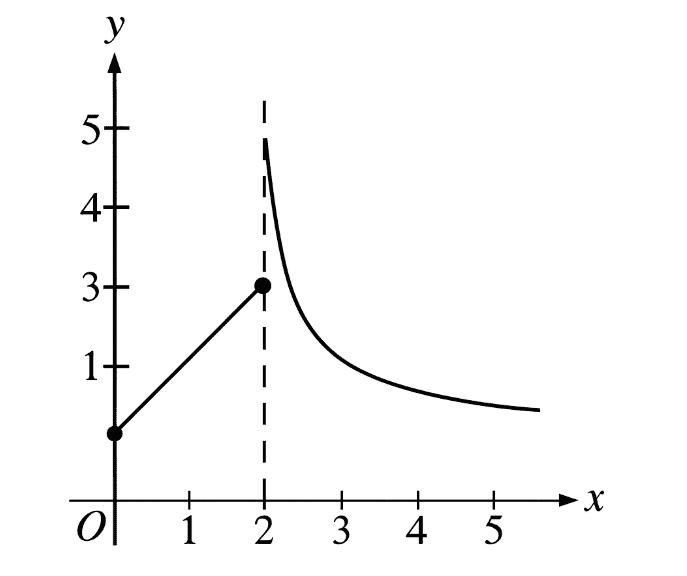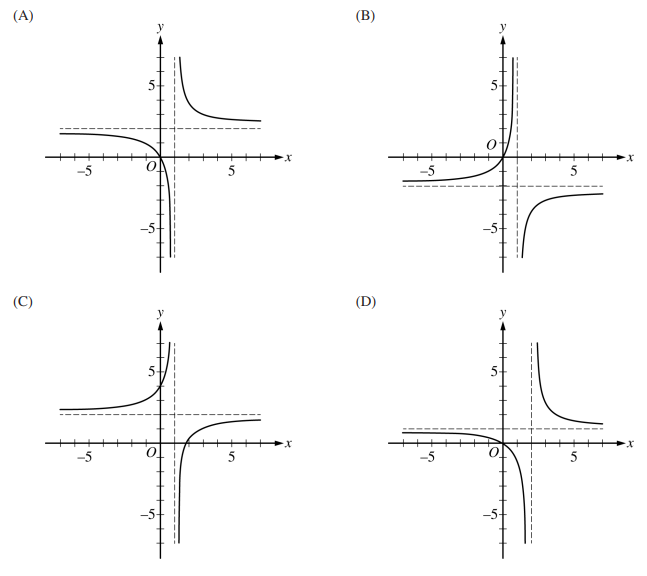AP Calculus BC 1.14 Connecting Infinite Limits and Vertical Asymptotes - MCQs - Exam Style Questions
No-Calc Question

The figure shows the graph of a piecewise function \(f\) with domain \([0,\infty)\). The function has a **vertical asymptote** at \(x=2\) and a **horizontal asymptote** at \(y=1\). Which of the following statements are true?
II. \( \displaystyle \lim_{x\to 2^-} f(x)\) exists
III. \( \displaystyle \lim_{x\to \infty} f(x)=1\)
(B) I and II only
(C) I and III only
(D) II and III only
▶️ Answer/Explanation
At \(x=2\): a vertical asymptote means the two-sided limit does **not** exist as a finite number ⇒ I is false.
Left side: from the graph the curve approaches a finite height as \(x\to 2^{-}\) ⇒ the one-sided limit exists ⇒ II is true.
As \(x\to\infty\): a horizontal asymptote at \(y=1\) gives \(\lim_{x\to\infty}f(x)=1\) ⇒ III is true.
✅ Answer: (D) II and III only
No-Calc Question

▶️ Answer/Explanation
The limits imply:
- Vertical asymptote at \(x=1\) with left-hand limit \(+\infty\) and right-hand limit \(-\infty\).
- Horizontal asymptote \(y=2\) as \(x\to\pm\infty\) (same value on both ends).
Check the options:
• (A) has the vertical asymptote at \(x=1\) but with \(\lim_{x\to 1^-}f(x)=-\infty\) and \(\lim_{x\to 1^+}f(x)=+\infty\) (reversed).
• (B) shows horizontal asymptotes not equal to \(2\).
• (C) matches: \(y=2\) is the horizontal asymptote on both sides, and at \(x=1\) the left branch goes to \(+\infty\) while the right branch goes to \(-\infty\).
• (D) does not have the correct horizontal/one-sided limit behavior.
✅ Answer: (C)
